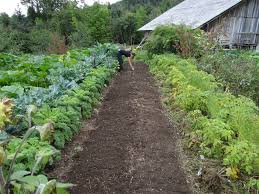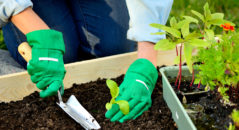Organic gardening has become an increasingly popular trend in recent years, with many people opting to grow their own fruits, vegetables, and herbs at home using natural techniques instead of relying on harmful pesticides and chemicals. While there are certainly many benefits to this approach, there are also several potential drawbacks to take into consideration. This article will discuss the advantages and disadvantages of organic gardening so that readers can decide whether it’s the right choice for them.
Advantages of Organic Gardening
Organic gardening is beneficial to both people and the environment in a variety of ways. The most obvious advantage is that organic foods are healthier to eat as they haven’t been exposed to harsh chemicals or other contaminants. In addition, foods grown organically have been found to have higher levels of essential vitamins and minerals. They also tend to taste better than conventionally-grown foods due to the lack of artificial flavors and additives.
Organic gardening is also safer for the environment since it eliminates the need for synthetic fertilizers and pesticides. This helps prevent soil erosion, soil contamination, and water pollution. It also helps conserve natural resources, as many of the natural ingredients used in organic gardening are renewable. Finally, organic gardening helps promote biodiversity since it encourages the growth of beneficial insects and microbes.

Disadvantages of Organic Gardening
Although organic gardening has many advantages, it also has some potential drawbacks. One of the most significant disadvantages is the fact that it can take a lot of time and effort to produce healthy and pesticide-free fruits and vegetables. Many of the techniques used in organic gardening require more manual labor than conventional farming techniques. This can be exhausting, especially for inexperienced gardeners.
In addition, organic gardening requires more space than conventional farming techniques since it relies on crop rotation and intercropping instead of overcrowded cultivation. Furthermore, organic farming may not produce as high of yields as conventional farming, so gardeners may not be able to grow all the fruits and vegetables they want. Finally, organic gardening can be expensive since many of the materials needed are not readily available or may need to be purchased from specialty stores.
Conclusion
Organic gardening can be an enjoyable and rewarding activity that brings a variety of benefits both to individuals and the environment. When done properly, it can provide healthful, fresh fruits and vegetables that are free of harmful pesticides and chemicals. However, it’s important to keep in mind the potential drawbacks




